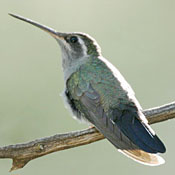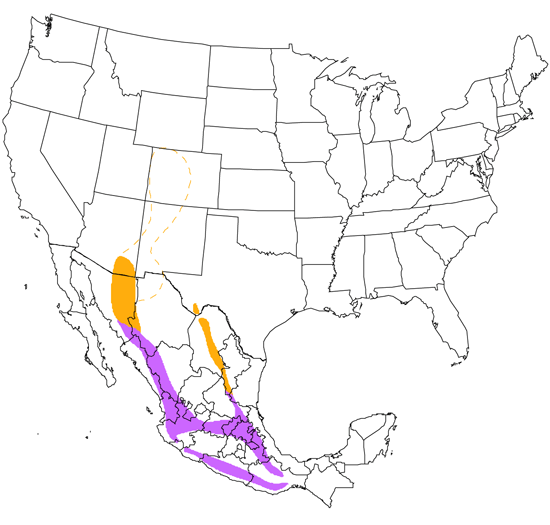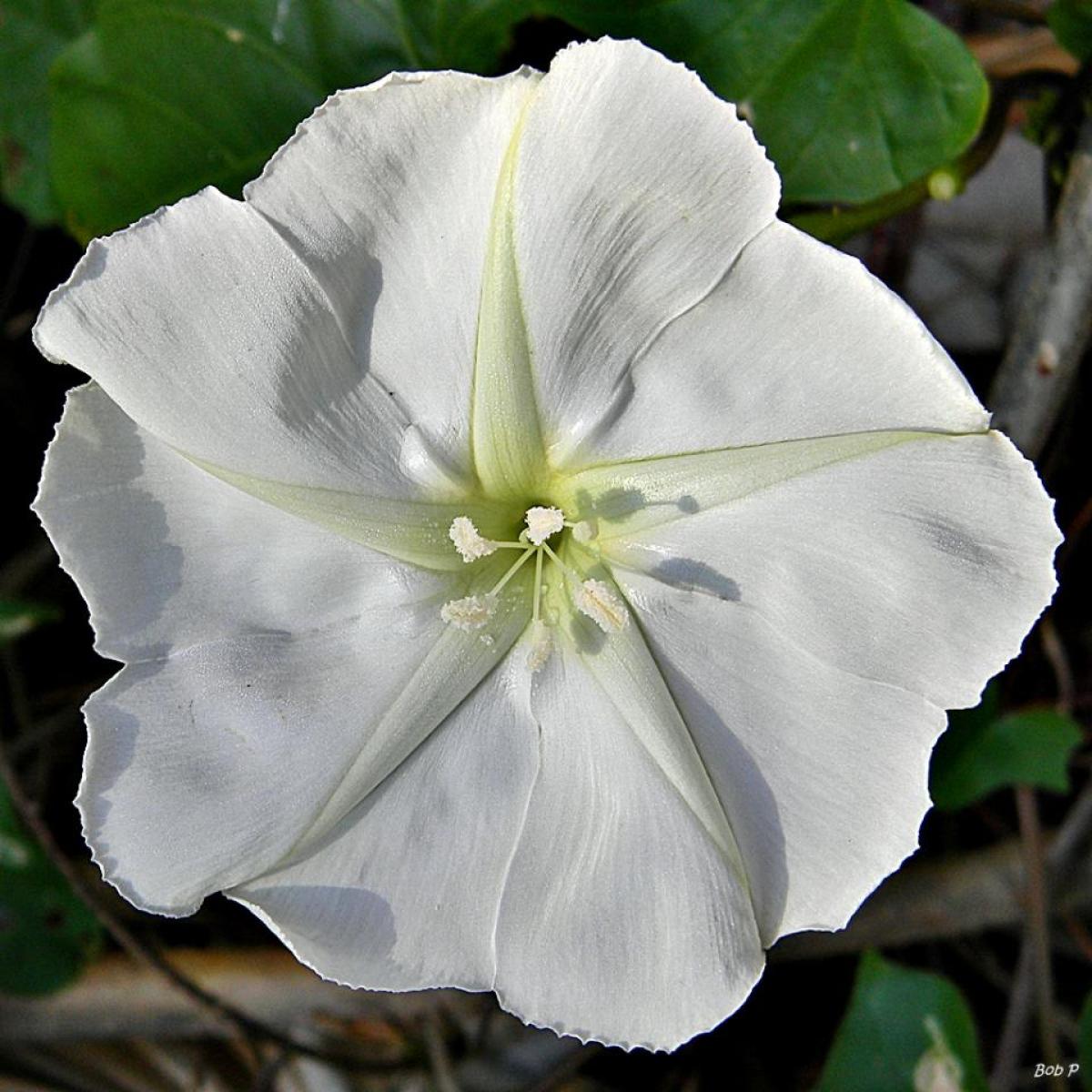Blue-throated Hummingbird
Lampornis clemenciae

Hummingbird

Length: 5 in. (13 cm )
An inhabitant of shady pine-oak canyons, this large hummingbird builds its cup-like nest low in shrubbery. The nest is made of spider webbing, moss and plant material and covered on the outside with lichens. The large body size makes it possible to bully other smaller hummingbird species and dominate flower patches where it drinks nectar and catches spiders and other small insects. In the latter part of the breeding season, males abandon the nesting area and the females by moving to higher elevations.
The four-digit banding code is BLUH.
Bibliographic details:
- Article: Blue-throated Hummingbird
- Author(s): Dr. Biology
- Publisher: Arizona State University School of Life Sciences Ask A Biologist
- Site name: ASU - Ask A Biologist
- Date published: 13 Jul, 2017
- Date accessed:
- Link: https://askabiologist.asu.edu/activities/bird/blue-throated-hummingbird
APA Style
Dr. Biology. (Thu, 07/13/2017 - 15:38). Blue-throated Hummingbird. ASU - Ask A Biologist. Retrieved from https://askabiologist.asu.edu/activities/bird/blue-throated-hummingbird
Chicago Manual of Style
Dr. Biology. "Blue-throated Hummingbird". ASU - Ask A Biologist. 13 Jul 2017. https://askabiologist.asu.edu/activities/bird/blue-throated-hummingbird
Dr. Biology. "Blue-throated Hummingbird". ASU - Ask A Biologist. 13 Jul 2017. ASU - Ask A Biologist, Web. https://askabiologist.asu.edu/activities/bird/blue-throated-hummingbird
MLA 2017 Style
Be Part of
Ask A Biologist
By volunteering, or simply sending us feedback on the site. Scientists, teachers, writers, illustrators, and translators are all important to the program. If you are interested in helping with the website we have a Volunteers page to get the process started.




